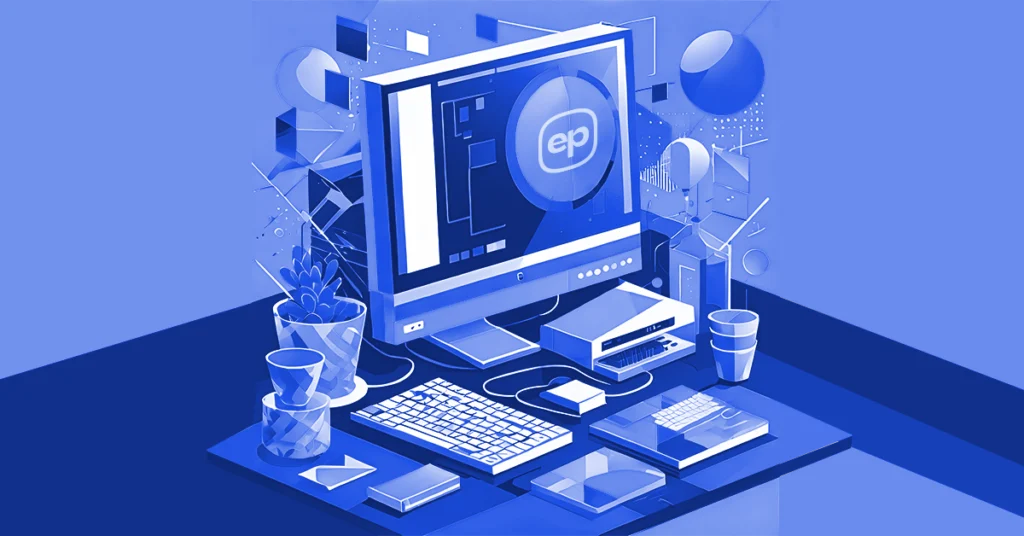At the center of every successful event is a smooth admission process that shapes the first direct contact between organization and participants. Modern ticket software has evolved far beyond simple ticket sales systems and now functions as an integrated solution for complex access management challenges. These technological platforms orchestrate the entire participant lifecycle and transform potential problem zones into positive touchpoints.
Transformation of Access Management in the Digital Context
The transformation from paper-based systems to intelligent digital solutions reflects a fundamental paradigm shift in the event industry. This evolutionary process has established new standards for efficiency, security, and user experience.


Technology Leap with Practical Impact
The development of modern access systems shows impressive innovation speed:
- Mechanical cash register systems required extensive manual accounting
- Digital databases enabled automated evaluations for the first time
- Cloud-based systems created global accessibility and real-time functions
- AI-supported analyses now provide predictive insights and optimization suggestions
This technological progression demonstrates how innovation drives practical problem-solving while simultaneously opening new possibilities.
Security Evolution in Access Verification
Parallel to technical development, security standards have also continuously evolved:
- Static barcodes formed the first generation of forgery-proof tickets
- Dynamic QR codes with time-controlled elements increased security
- RFID technology enabled contactless verification processes
- Biometric procedures now create the highest security standards
This security evolution responds to growing requirements and new threat scenarios in the event sector.
Economic Dimension of Intelligent Access Solutions
Professional ticket software significantly influences the economic efficiency of events. Through automation, optimization, and strategic data use, measurable economic advantages emerge.
Cost Reduction Through Process Automation
Intelligent systems reduce operational costs in various areas:
- Minimized personnel requirements for admission controls through automated verification
- Reduced material costs through digital tickets instead of paper variants
- Eliminated post-processing costs through automatic data capture
- Avoided error costs through system-supported quality assurance
These cost savings accumulate over multiple events into significant budget relief.
Revenue Optimization Through Strategic Price Control
Advanced ticket systems enable differentiated pricing strategies:
- Demand-based price adjustments maximize ticket revenues
- Time-controlled discount systems promote early bookings
- Target group-specific offers increase market penetration
- Last-minute strategies optimally utilize remaining capacities
These revenue management functions increase profitability without quality losses.
User-Friendliness as a Differentiating Feature
In a competitive event market, the quality of user experience often determines success. Modern ticket software therefore prioritizes intuitive operation and seamless interactions.
Frictionless User Experience
Contemporary ticket platforms systematically eliminate usage barriers:
- Single-click bookings drastically reduce abandonment rates
- Autofill functions accelerate registration processes
- Instant payment integration enables immediate transaction completion
- Progressive web apps offer app-like experiences without installation
These optimizations transform potential frustration moments into positive experiences.
Accessibility Standards for Inclusive Participation
Professional systems consider diverse usage requirements:
- Screen reader compatibility for visually impaired users*
- Keyboard navigation for motorically impaired persons
- Contrast-optimized display for various vision strengths
- Multilingual interfaces for international target groups
This inclusivity expands the potential user* base and demonstrates social responsibility.
Data Analytics as Strategic Asset
The extensive data volumes generated by digital ticket systems open completely new perspectives for strategic decision-making and market understanding.
Behavioral Analytics for Optimization Insights
Modern systems provide profound behavioral analyses:
- Purchase timing analyses identify optimal sales windows
- Abandonment point evaluations reveal optimization potential
- Device statistics inform about technical requirements
- Geographic distributions show regional preferences
These analytical insights enable data-based strategy development and continuous improvement.
Predictive Models for Capacity Planning
Advanced analysis functions support forward planning:
- Demand forecasts based on historical patterns
- Seasonality models for optimal scheduling
- Price sensitivity analyses for strategic tariff design
- Risk assessments for various event scenarios
These forecasting capabilities reduce planning uncertainties and improve resource allocation.
Compliance and Legal Security
In an increasingly regulated environment, professional ticket software solutions ensure compliance with various legal requirements and create legal security for organizers*.
Data Protection Compliance
Contemporary systems implement comprehensive data protection measures:
- GDPR-compliant data processing with transparent consent mechanisms
- Encryption technologies for secure data transmission
- Deletion automation for time-limited data retention
- Information rights with automated reporting functions
These compliance features protect both organizers and participants from legal risks.
Ticket Software: Innovation as Growth Driver
The continuous development of ticket software solutions not only drives technological progress but also opens new business models and market opportunities in the event industry.
Modern platforms evolve from pure transaction systems to comprehensive participant engagement tools. They create added values that go far beyond the original ticket purchase and promote long-term customer relationships. This evolution transforms one-time transactions into lasting connections between organizers and their community.
Those who invest in future-proof ticket software today position themselves optimally for the changing requirements of the event industry. The combination of technological excellence, economic efficiency, and outstanding user experience creates sustainable competitive advantages in a dynamic market environment.










